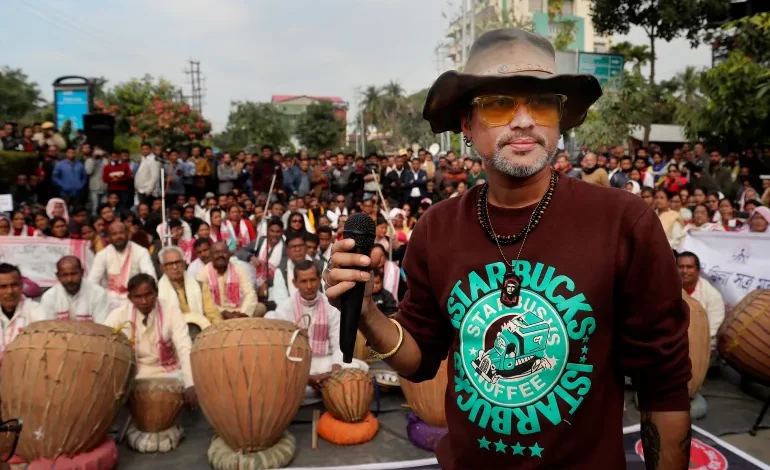‘Zubeen was for all’: Singer’s death unites India’s religiously torn Assam

For more than 15 years, truck driver Imam Hussain found solace in singer Zubeen Garg’s voice and music as he drove his vehicle on quiet and lonely nights along the Himalayan hills and plains of the northeastern Indian state of Assam.
It was a period in which Bengali-speaking Muslims – the community 42-year-old Hussein belongs to – increasingly came under attack in Assam. They’ve been accused of being outsiders – even infiltrators – in their own home.
On September 19, Garg died by drowning near Lazarus Island in Singapore, where he was scheduled to perform at the Northeast India Festival, an event that celebrates the art and culture of the Indian region.
The sudden death of the 52-year-old artist, who enjoyed a cult-like status among millions of his fans in and outside Assam, triggered a massive outpouring of grief that further cemented his stature as a public figure whose appeal spanned divisions that have otherwise fractured the state. The singer’s wife, Garima Saikia Garg, issued a statement, saying her husband “suffered a seizure attack” while swimming in the sea.
While Hussain was mourning Garg’s death, so was Prime Minister Narendra Modi, whose Hindu majoritarian Bharatiya Janata Party (BJP) is accused by critics of fanning Hindu-Muslim divisions nationally and in Assam.
ssam’s Chief Minister Himanta Biswa Sarma, who belongs to Modi’s party, said the state “lost one of its favourite sons”.
“Zubeen’s voice had an unmatched ability to energise people, and his music spoke directly to our minds and souls. He has left a void that will never be filled,” Sarma said.
The Assam government declared four days of state mourning as Sarma flew to the capital, New Delhi, to receive Garg’s body when it returned from Singapore.









